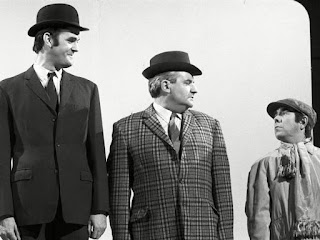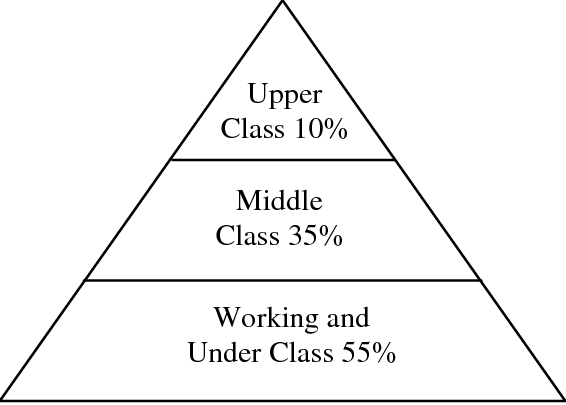So, character generation in Call of Cthulhu is boring and largely meaningless. Roll 2d6+6 for inflated stats, none of which will matter hereafter. Here is a list of occupations, a couple of skills, take an arbitrary lump sum of skill points and distribute them. Don't forget to look up the arbitrary skill defaults while you're at it.
Ho hum.
I know I’m a broken record on this, but I've always disliked the disconnect in Chaosium games between attributes and skills. It doesn’t matter how high or low your DEX is, everyone shoots a gun at the same starting percentage. This is not very realistic, and the lump sum distribution of skill points is equally uninspiring.
Although classic Stormbringer tried to connect these more, the calculations were a bit fiddly and not worth the trouble.
In the Stormbringer houserules I devised, skill percentages are determined by multiplying attributes, providing a much stronger link between skills and ability. If all soldiers have Weapon skill at DEX x 5%, one with a DEX of 10 will not be as good as another with a DEX of 15. A 50% chance to hit pales in comparison with 75%.
What if we port this over to Call of Cthulhu? Here is how I would implement it:
1) Introduction: Skill and Social Class
In this system, all the starting skills in the Occupation descriptions (see rulebook) are determined by multiplying the Skill Modifier by the requisite attribute. The average Skill Modifier is 5 x the appropriate attribute, but this may be reduced due to social class. Here is a list of all skills and their relevant attributes:
INT SKILLS
Accounting, Anthropology, Archaeology, Astronomy, Biology, Chemistry, Electronics, Geology, History, Law, Library Use, Mechanics, Medicine, Natural History, Navigate, Occult, Other Languages, Own Language, Pharmacy, Physics, Psychology
CHA SKILLS
Bargain, Credit Rating, Disguise, Fast Talk, Persuade, Psychoanalysis
DEX SKILLS
Conceal, Dodge, Drive, Ride, Handguns, Hide, Locksmith, Operate Heavy Machinery, Pilot, Rifles, Shotguns, Sneak, Submachine Guns
STR SKILLS
Climb, Fist, Punch, Grapple, Headbutt, Jump, Swim, Throw
POW SKILLS
First Aid, Listen, Photography, Spot Hidden, Track
OTHER SKILLS
Craft (varies STR, DEX or POW)
Cthulhu Mythos (as normal rules)
Martial Arts (Decide whether you have learned a hard style based on STR or soft style based on DEX.
For hard styles, when you roll an attack such as Punch or Kick, if a success is under both Punch / Kick & Martial Arts, you do double damage. Also, if a successful attack you roll is Parried, the parrying character takes half damage.
For soft styles, when you roll a Parry or Dodge as normal, if a success is under both the Parry / Dodge & Martial Arts, you can roll a Grapple attack to throw the attacker.
NEW SKILLS
You could also make up new skills based on this principle. CON skills are noticeably absent, so things like Resist Poison, Resist Pain, Resist Hunger etc could all be CON based.
2) Step One: Roll Attributes & Social Class
First, roll ALL attributes on 3D6. That's right, suck it up, buttercup! You'll be getting some historically accurate, wildly uneven people.
Your EDU score determines your Social Class as follows. This affects your starting money and occupational skill base of x 5% as follows:
3 Destitute. Starting money is 1/10. Skill modifier is x 2% because you were always too busy making ends meet to concentrate on education.
4-5 Poor. Starting money is 1/4. Skill modifier (explained below) is at x 3% because you were stressed by your lack of means.
6-8 Lower middle class. Starting money is 1/2. Skill modifier (explained below) is x 4% because you had to work twice as hard as anyone above you.
9-12 Middle class. Starting money is as normal. Skill modifier (explained below) is normal (x 5%) because you were supported enough to reached your full potential.
13-15 Upper middle class. Starting money is x 2. Skill modifier (explained below) is x 4% because you were profligate.
16-17 Rich. Starting money is x 4. Skill modifier (explained below) is x 3% because you had it easier than most and coasted to success.
18 Millionaire class. Starting money is x 10. Skill modifier (explained below) is at x 2% because you never had to work a day in your life.
3) Step Two: Choose Occupation & Determine Skills
Occupations are classed into three levels, Lower, Middle, and Upper Class Occupations, and Occupational Skill Modifier is as above. Also, if you choose an Occupation from outside your class, you get a - 1 to your skills modifier for every level of difference . For example, an upper class character (base skill modifier x 2) would have no penalty being a doctor, but would get - 1 (so base skill x 1%) for 'slumming it' as a middle class police detective. This reflects both how rigid class distinctions are, as well as the reduced efficiency individuals have for doing a profession outside their habitus or social origin.
Level 1 - Lower Class Occupations (For Destitute, Poor, or Lower middle class Social Classes). Consists of disenfranchised, workers, outsiders.
Ex. Artist (unsuccessful), Author (unsuccessful), Entertainer (unsuccessful),Criminal, Hobo, Revolutionary, Tribal Fisherman, Tribal Warrior
NB: A player with an arts occupation PC rolls versus Luck or CHA x1% at creation to see if they are successful or not.
Level 2 - Middle class Occupations (For Middle class or Upper middle class Social Classes). Consists of professionals, public servants.
Ex. Athlete, Clergyman, Engineer, Farmer/Woodsman, Foot Soldier, Journalist, Missionary, Police Detective, Police Patrolman, Private Investigator
Level 3 - Upper Class Occupations (For Rich or Millionaire class Social Classes)
All Academics (until the 1970's when Neoliberalism kicks in and they become middle class). Politicians or leaders.
Ex. Antiquarian, Artist (successful), Author (successful), Dilettante, Doctor of Medicine,
Entertainer (successful), Lawyer, Military Commander, Musician (successful), Parapsychologist, Professor.
For example, a middle class character (base skill modifier x 5) who wants to be a professor (one class above so will have skills at, while a
4) Step Three: Determine Other Skills
Roll 1D6+2, then distribute these as attribute x 1% per point among any skills you want. You can beef up occupational skills or else take non occupational skills.
Emergency Defaults
In an emergency, a character is considered to have attribute x 1% in any skill they need that they could logically have. If you (surprisingly) haven't taken any skill in Pistol, if you pick one up in a firefight you are considered to have DEX x 1%, not 0%. However, a North American policeman character dropped into ancient Egypt would not be able to speak the language at INT x 1%.
5) Standard of Living
Along with the importance of social class for occupation and skill selection, it also strongly affects characters' lifestyles.
ALL player characters lose 1% of their wealth between sessions to reflect the cost of living. This means lower class characters will also have to think of making ends meet while fighting cosmic horrors. In case rich characters hire poorer ones, or they get hired by NPCs, daily salary for the 1920's and 30's is INT in dollars per day, multiplied by social class level. So a character would get INT x1 if lower class, x 2 if middle, and 3 x if upper class.
6) Roleplaying Effects
Social class also affects player and non-player character interaction as follows.
Same social level - Friendly, helpful.
One level apart - Guarded, does the minimum required.
Two levels apart - Arrogant or resentful, refuses help if not in their interest.
Conclusion
If you don't see the use or the fun in this proposal, don't use it. As for me, I think like my previous post on subtext in Lovecraft, this would really add depth to roleplaying, and is thus worth the effort.



No comments:
Post a Comment